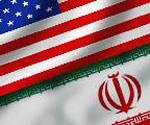 Wall Street Journal: Secretary of State John Kerry said international efforts to contain Iran’s nuclear program through diplomacy would continue even though another round of negotiations with Tehran over the weekend failed to record any meaningful advances, or even an agreement yet to hold another round. The Wall Street Journal
Wall Street Journal: Secretary of State John Kerry said international efforts to contain Iran’s nuclear program through diplomacy would continue even though another round of negotiations with Tehran over the weekend failed to record any meaningful advances, or even an agreement yet to hold another round. The Wall Street Journal
Secretary of State Maintains Approach Despite Lack of Progress in Negotiations, Allies’ Impatience
By JAY SOLOMON And LAURENCE NORMAN
 JERUSALEM—Secretary of State John Kerry said international efforts to contain Iran’s nuclear program through diplomacy would continue even though another round of negotiations with Tehran over the weekend failed to record any meaningful advances, or even an agreement yet to hold another round.
JERUSALEM—Secretary of State John Kerry said international efforts to contain Iran’s nuclear program through diplomacy would continue even though another round of negotiations with Tehran over the weekend failed to record any meaningful advances, or even an agreement yet to hold another round.
The lack of real progress in the Iran talks comes alongside growing impatience among Israelis and other key U.S. allies in the region, placing the Obama administration in an ever-tighter diplomatic squeeze.
Confronting the dilemma, Mr. Kerry will spend three days this week in Israel, meeting with Prime Minister Benjamin Netanyahu on Tuesday. The visit comes amid Israel’s repeated charges that Tehran’s Islamist government is using the talks with global powersas a cover to advance its nuclear expertise while minimizing chances of an American or Israeli military strike.
“Israel has already warned that the Iranians are exploiting the talks in order to play for time while making additional progress in enriching uranium for an atomic bomb,” Israel’s Minister of Strategic Affairs Yuval Steinitz said on Saturday, suggesting a deadline be imposed for the use of military action. “Israel believes that without a significant and tangible threat, including a short timetable, it is clear that achieving the dismantling of the nuclear project will not be possible.”
Still, Washington’s top diplomat stressed on Sunday that the White House still believed there was time for diplomacy to work, despite the failure of the talks in Kazakhstan to break new ground.
“There was somewhat of a gap that remains, obviously, as a consequence of the discussions that they had in Almaty,” Mr. Kerry told a news conference in Istanbul, before flying to Israel. “But the door is still open to doing that, and yes, indeed, it is important to continue to talk and to try to find the common ground.”
U.S. officials said Mr. Kerry will extensively discuss Iran and its nuclear program during his three-day stay in Jerusalem. The round of meetings follows a visit to the Mideast in March by Mr. Kerry and President Barack Obama, and will encompass the administration’s efforts to restart long-stalled peace talks with the Palestinians.
Mr. Kerry met late Sunday in the West Bank with Palestinian President Mahmoud Abbas. Mr. Kerry is seeking to coax concessions from both Israelis and Palestinians, and to put in place confidence-building measures that will allow for the first direct peace talks in more than two years. U.S. officials said Mr. Kerry specifically discussed with Mr. Abbas ways to revitalize the economy in the Palestinian territories. The American diplomat will meet with Palestinian Prime Minister Salam Fayyad Monday.
International powers met for two days with Iranian negotiators in talks that ended Saturday with no deal. In one positive sign, senior Western diplomats pointed to changes in Iran’s willingness to discuss international concerns about Tehran’s nuclear program and evidence it is seeking atomic weapons.
Iran says its program is purely for civilian purposes. “There may not have been a breakthrough, but there also wasn’t a breakdown,” said a senior U.S. official.
European Union foreign-policy chief Catherine Ashton, who chairs the group of six major powers negotiating with Tehran, known as the P5+1, plans to call Iran’s chief negotiator Saeed Jalili in the “next few days” to decide how to move forward, the official said.
Mr. Jalili told reporters in Almaty that he had provided detailed answers to the P5+1’s questions, but acknowledged “some distance” between the two sides. He also gave his clearest hint yet that Iran could be willing to suspend uranium enrichment at 20% purity, considered a short step from weapons grade, as a confidence-building move.
“We are ready to talk about these ideas and explore them,” he said.
Mr. Netanyahu told the United Nations in September that the international community needed to be prepared to strike Iran’s nuclear facilities by this summer to guard against Tehran acquiring nuclear weapons.
The Israeli leader estimated Iran could produce enough near-weapons-grade fuel by then—roughly 550 pounds of uranium enriched to 20% purity—to produce one atomic bomb, if it is processed further.
In recent weeks, however, U.S. and Israeli officials have concluded that Iranian Supreme Leader Ayatollah Ali Khamenei has decided to respect this Israeli red line to guard against an international crisis during a key election year in Iran. Mr. Khamenei is seen trying to place a successor for President Mahmoud Ahmadinejad during the June vote who is more in line with the cleric’s policies.
Still, both U.S. and Israeli officials worry that Tehran could seek to challenge the Israeli red line this year, particularly if Mr. Khamenei feels empowered after the presidential elections.
Cliff Kupchan, Middle East director at the Eurasia Group, said this autumn would be “showtime” for the talks. “With the election over and its economy in decay, Iran may come back to the table this fall with a more flexible position, while the P5+1 will retain its intense interest in a negotiated settlement.”
—Joshua Mitnick contributed to this article.


